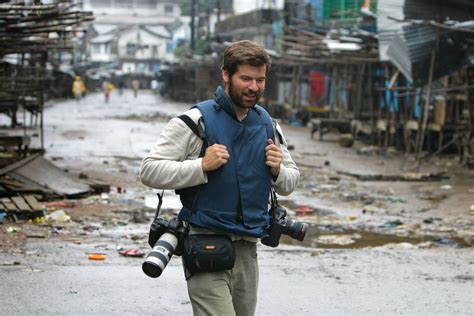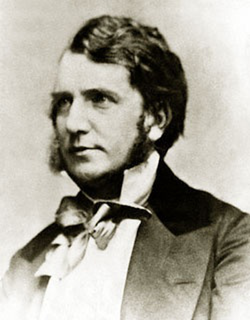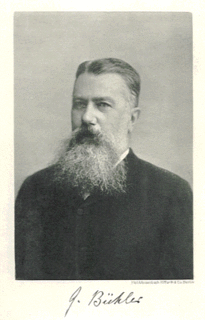A Quote by Chris Hondros
One of the ongoing themes in my work, I hope, and one of the things I believe in, is a sense of human nature, a sense of shared humanity above the cultural layers we place on ourselves [which don't] mean that much compared to the human experience.
Related Quotes
By experience; by a sense of human frailty; by a perception of "the soul of goodness in things evil;" by a cheerful trust in human nature; by a strong sense of God's love; by long and disciplined realization of the atoning love of Christ; only thus can we get a free, manly, large, princely spirit of forgiveness.
The Idols of Tribe have their foundation in human nature itself, and in the tribe or race of men. For it is a false assertion that the sense of man is the measure of things. On the contrary, all perceptions as well of the sense as of the mind are according to the measure of the individual and not according to the measure of the universe. And the human understanding is like a false mirror, which, receiving rays irregularly, distorts and discolors the nature of things by mingling its own nature with it.
There is no such sense of solitude as that which we experience upon the silent and vast elevations of great mountains. Lifted high above the level of human sounds and habitations, among the wild expanses and colossal features of Nature, we are thrilled in our loneliness with a strange fear and elation – an ascent above the reach of life's expectations or companionship, and the tremblings of a wild and undefined misgivings.
The sciences that purport to treat of human things -- the new scientific storyings of the social, the political, the racial or ethnic, and the psychic, nature of human beings -- treat not of human things but mere things, things that make up the physical, or circumstantial, content of human life but are not of the stuff of humanity, have not the human essence in them.
Humanity is part of nature, a species that evolved among other species. The more closely we identify ourselves with the rest of life, the more quickly we will be able to discover the sources of human sensibility and acquire the knowledge on which an enduring ethic, a sense of preferred direction, can be built.
The process of writing can be a powerful tool for self-discovery. Writing demands self-knowledge; it forces the writer to become a student of human nature, to pay attention to his experience, to understand the nature of experience itself. By delving into raw experience and distilling it into a work of art, the writer is engaging in the heart and soul of philosophy - making sense out of life.
'The 5th Wave' is sci-fi, but I tried very hard to ground the story in very human terms and in those universal themes that transcend genre. How do we define ourselves? What, exactly, does it mean to be human? What remains after everything we trust, everything we believe in and rely upon, has been stripped away?
I won't deny the polemical elements in my work, but they are less in the service of attempting to reform human behavior than the delighted exercise of my rather malicious sense of humor - especially vis-a-vis the horrifying everyday environment we have produced for ourselves. These mall-scapes, burb-scapes, urban wildernesses, starchitect stunts, and other toxic contexts for our daily lives express about every human vice, stupidity, and blunder that it is possible for a society to make. It all leads, really, to a psychological place where only comedy or despair make sense.
Theologians in all the great faiths have devised all kinds of myths to show that this type of kenosis, of self-emptying, is found in the life of God itself. They do not do this because it sounds edifying, but because this is the way that human nature seems to work. We are most creative and sense other possibilities that transcend our ordinary experience when we leave ourselves behind.



































